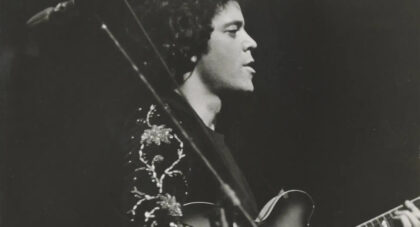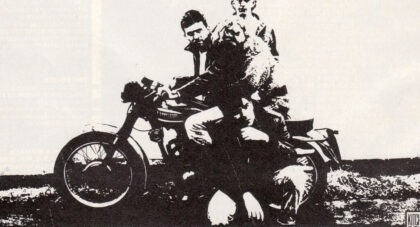“You have to really want to be here,” Keith Abrahamsson says, overlooking the small West Texas town of Marfa.
We’re sitting on the deck of a stone and adobe house just off Highway 90, positioned atop a hill. Since 2014, the label Abrahamsson founded, Mexican Summer, has hosted the annual Marfa Myths festival here with arts nonprofit Ballroom Marfa. Initially a single performance at local venue El Cosmico, the gathering has bloomed into a four-day multidisciplinary happening, dedicated to blurring the lines between cinema, literature, art, and music.
Below us, a rooster crows and a couple dogs fitfully bark. Abrahamsson, wearing a denim jacket and faded Levis, leans back in his chair and considers my question: What keeps him coming back to Marfa?
“It’s kind of hard to articulate,” Abrahamsson says. “But it does feel like the town has this magical something. I don’t know if it’s the remote location, or the super-dramatic landscape and sky. There’s something about it that just has this seemingly magnetic pull. I don’t know how to articulate what about it gives you the feeling that it’s a special place, but it does have that quality.”
Marfa’s specialness is a reminder that there’s no such thing as “nowhere.” Despite its relative geographic remoteness – it’s located about six hours west of Austin and a three-hour drive from El Paso – Marfa feels alive in an indefinable way, pulsing with a vibrancy most small, mostly isolated communities in America can’t anymore, their industries and prospects dried up. Though regular injections of New Yorkers, Angelinos, and big city entrepreneurs – via festivals like Marfa Myths, the Marfa Film Festival, and the Chinati Weekend – bring clout and cash to the town, it’s not a hectic place. Which is precisely why everything feels so charming: Things happen here, at their own gentle pace.
Only the good shit. Aquarium Drunkard is powered by its patrons. Keep the servers humming and help us continue doing it by pledging your support.
To continue reading, become a member or log in.


